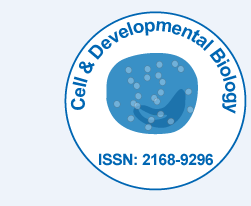
कोशिका एवं विकासात्मक जीव विज्ञान
खुला एक्सेस
आईएसएसएन: 2168-9296

आईएसएसएन: 2168-9296
Wangpaichitr M, Kandemir H, Li YY, Wu C, Nguyen DJM, Feun LG, Kuo MT and Savaraj N
Despite numerous reports on immune checkpoint inhibitor for the treatment of non-small cell lung cancer (NSCLC), the response rate remains low but durable. Thus cisplatin still plays a major role in the treatment of NSCLC. While there are many mechanisms involved in cisplatin resistance, alteration in metabolic phenotypes with elevated levels of reactive oxygen species (ROS) are found in several cisplatin resistant tumors. These resistant cells become more reliant on mitochondria oxidative metabolism instead of glucose. Consequently, high ROS and metabolic alteration contributed to epithelial-mesenchymal transition (EMT). Importantly, recent findings indicated that EMT has a crucial role in upregulating PD-L1 expression in cancer cells. Thus, it is very likely that cisplatin resistance will lead to high expression of PD-L1/PD-1 which makes them vulnerable to anti PD-1 or anti PD-L1 antibody treatment. An understanding of the interactions between cancer cells metabolic reprogramming and immune checkpoints is critical for combining metabolism targeted therapies with immunotherapies.